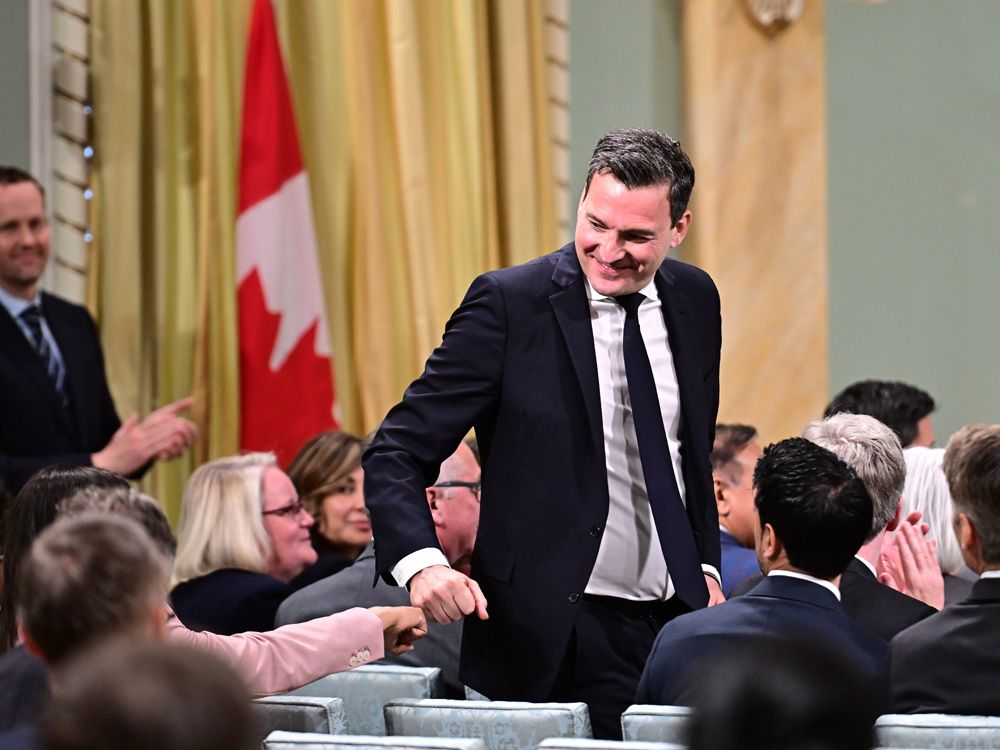Canada’s first-ever minister of
artificial intelligence
and digital innovation will need to accelerate the build-out of the country’s AI infrastructure while cultivating trust in the technology in the general public — and many in the industry are warning there will be little room for trial and error along the way.
Last week,
Prime Minister Mark Carney
named former journalist Evan Solomon to the newly created post, which will have him oversee the country’s adoption of the much-hyped technology. Carney has promised to run a lean and efficient government focused on growth and
productivity
, with technologies such as AI playing a crucial role in keeping Canada competitive and self-reliant.
Industry leaders say Solomon will have plenty of work to do and little margin for error, given the speed of AI advancement and Canada’s nosedive in global AI rankings.
“We were one of the first countries to come out with an AI policy roadmap in 2017. (But Canada’s leadership position) has slipped away in the last few years,” said Rob Goehring, executive director of industry group AI in B.C. and chief executive of cybersecurity firm WisrAI.
In 2021, Canada ranked fourth worldwide on the Global AI Index, a data project from U.K. digital media site Tortoise that tracks countries’ AI capacity based on implementation, innovation and investment. By 2024, Canada had dropped to eighth place behind countries such as Germany, France and South Korea.
Carney has pledged to build on the Trudeau government’s AI commitments, meaning existing commitments to channel $2.5 billion over the next two years to further AI and digital infrastructure projects, such as building data centres, expanding cloud computing capacity and procuring cutting-edge chips will likely be maintained.
The full scope of what Solomon and the government will add to that strategy has yet to be revealed, but industry players say the need for urgency is essential.
“It’s critical that we invest and move at a fast pace, because it’s clear that nobody will wait for us,” said Julien Billot, CEO of Montreal-based Scale AI, a federally-backed supercluster that helps industry adopt AI technologies.
Elissa Strome, executive director of the Canadian Institute for Advanced Research’s (CIFAR) pan-Canadian AI strategy, said Solomon should play to Canada’s existing strengths.
That means prioritizing the cultivation of AI talent and keeping it here, while helping researchers and businesses optimize existing resources to “build smaller and more energy-efficient models … instead of trying to build from scratch.”
“We’re not the richest country in the world,” Strome said. “We can’t fool ourselves and say that we could compete head-to-head with the U.S. or China on AI.”
Advancing partnerships with like-minded countries to address infrastructure constraints will also be key, Strome said; Canada last year signed a memorandum of understanding with the U.K. on access to computing power and collaborative AI research projects.
Another area needing attention is the lagging adoption of AI in Canadian businesses. A 2024 Canadian Chamber of Commerce report found that nearly 75 per cent of Canadian businesses aren’t considering using generative AI anytime soon.
To that end, the Carney government has already indicated it will deploy a new 20 per cent AI tax credit for small and medium-sized businesses that invest in AI training, adoption and commercialization.
Safety and ethics will also be an integral part of the puzzle. Some say that moving fast on AI growth and adoption shouldn’t mean ignoring ethical guardrails — rather, that Solomon should help Canada lead on such issues, which will build up Canada’s global AI brand and encourage public buy-in on the agenda.
“One of the ways that Canada stands out is our commitment to safe, trustworthy, and responsible AI. That has always been a part of our DNA,” Strome said. “It’s a great way for Canada to have an out-sized influence on the global stage and to find like-minded countries to collaborate with.”
Scale AI’s Billot similarly argued that Canada can position itself as the “Switzerland of AI” — a globally-recognized mid-sized AI power that safeguards democratic values and privacy at a time when the U.S. and China are pursuing their own visions of AI.
“We should look at how we define ourselves as a country — what our values are — and not lose sight of that. It’s long-term positioning that can bear fruit later on. There are opportunities for Canada to play a bigger role on the global AI stage. We just need to identify them,” he said.
Others, however, warned that over-regulating the technology was a risk, too.
“Being too far different in a regulatory environment than the U.S. could put us in a position of moving slower or losing companies,” said Cam Linke, chief executive of the Alberta Machine Intelligence Institute (Amii), one of Canada’s three national AI institutes.
Whatever AI messaging Ottawa wants to convey to the world, the addition of the new cabinet post is seen as a positive, offering the potential for a more cohesive voice.
“We need somebody to embody AI for Canada and to speak about our AI strategy worldwide,” Billot said.
Solomon’s selection to the post raised some eyebrows because of his background in journalism. Unlike David Sacks, a technology investor and entrepreneur recently appointed as AI and crypto czar in the U.S, Solomon does not come from a financial or tech background, but that is a shortcoming industry figures believe can be addressed.
“Tech builders (want) to see Solomon surround himself with external AI experts and operators … to advise on reforms and be involved in execution where deep expertise is critical,” said Lucy Hargreaves, vice-president of corporate affairs and policy at climate software startup Patch and founding member of Canada Spends, a tech sector initiative that tracks Canadian government spending.
Mark Doble, CEO of legal AI platform Alexi, argues that the most important thing Solomon needs to do is “know when not to act.”
“Policymakers tend to respond with funding programs or direct interventions, but in the case of AI, that can often do more harm than good,” he said. ”But rather, he should focus on creating the right conditions for innovation: clear rules, minimal friction, space for builders to build.”
Solomon most recently worked as the publisher for New York-based geopolitical consultancy Eurasia Group’s GZERO Media. He has hosted national news segments like CTV’s Power Play and CBC’s Power and Politics, but was fired by CBC following the revelation he had brokered art deals between a collector and influential people.
For Billot and others, Solomon’s background in communications will be pivotal to nurturing public trust in AI.
“We should not underestimate the importance of explaining to people what AI is about — how it can drive positive change and how we can guard against improper uses of it. To do that, you need good communication skills and political sense,” he said.
Goehring likened it to coaching a sports team.
“The best coaches aren’t necessarily the top players,” he said. “You need someone with a broad view who can build coalitions and bring people together. Solomon, I imagine, has a large Rolodex of people he can call on.”
• Email: ylau@postmedia.com
Bookmark our website and support our journalism: Don’t miss the business news you need to know — add financialpost.com to your bookmarks and sign up for our newsletters here.
'Nobody will wait for us': Tech sector says urgency is key for new AI minister Evan Solomon
2025-05-22 18:16:41





